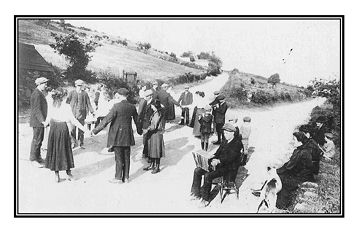We’re back! I know it’s been a while but we’ve got some “good stuff” – (c) Mark Wilson Smith, well known Atlas teacher – in store for you over the coming weeks and months.
Today, we have the first in a new series on World Englishes as we take a look at the different ways in which English is spoken around the world today, and we’ll also see how other languages have fed into English, making it the global language it is today.
So, it’s over to Tim, to get us going with Irish English, naturally.
Stop acting the maggot, gasúr, and get my runners from the hotpress. I’m after being asked to a ceili.
During your time here in Dublin, you will have many opportunities to improve your English by speaking to a wide range of people. Many of the people you meet will be from other countries, but of course the majority of people in Dublin are Irish. Sometimes, when you are speaking to a native Irish speaker of English, you will hear some words and phrases that are different from what you have learned in the past, and that is because Irish English (or Hiberno-English – the Latin name for Ireland is Hibernia, “The Land of Winter”, maybe because the Romans thought it was too cold!) contains some vocabulary and grammatical structures that are different from British English. Here, I will explain some of these differences, and hopefully after you read, you will be able to recognise some of them the next time you are speaking to an Irish person!

